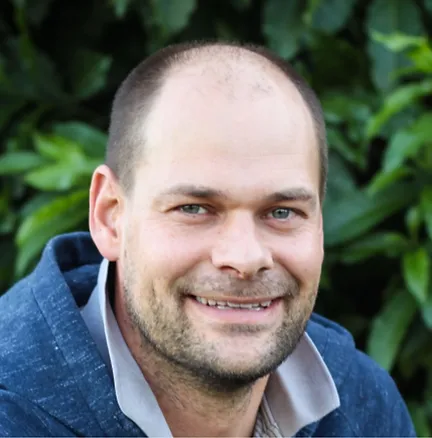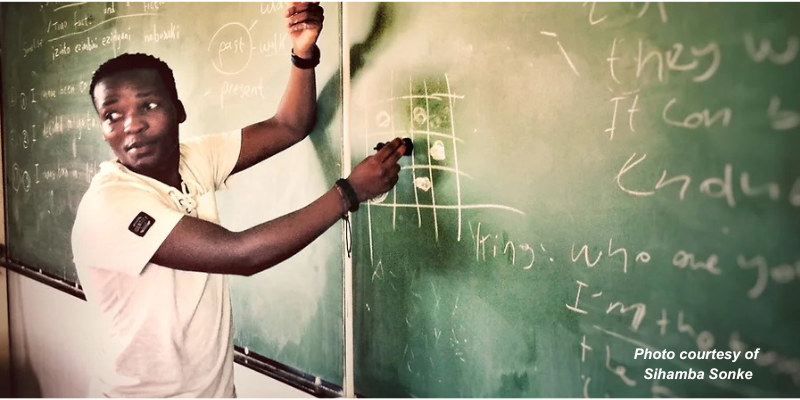Hope, Restoration, and Chess in Rural South Africa
“I’m one of the many, many people that you guys never hear about,” Ruan Cilliers began as he started his devotion during a visit to the Chalmers office last spring.

He was referring to the small churches and ministries all over the world that have read Chalmers’ books and implemented the biblically-based principles to help ignite transformation in their communities.
Over a decade ago, Ruan and his family moved from Cape Town to the village of Zithulele in the Eastern Cape province of South Africa, just miles away from the place Nelson Mandela was raised. His wife had secured a job as a physician at a local hospital and he was looking forward to working in youth ministry.
He read When Helping Hurts soon after his arrival, but over the next five years, he made many of the mistakes he read about. Despite hosting many Bible studies, outreach teams, and events – all of the things he brought with him from westernized Cape Town – they still weren’t seeing transformation in their rural village.
The Realities of Broken Relationships
In Zithulele, the unemployment rate is over 90% and most young people believe their only hope for a better future is to leave the village to go to university or find work in the city. Unfortunately, that option is only available to a few top students.
Over time, Ruan came to understand how deeply rooted the issues were – the broken school system, the abuse, the environment. And it wasn’t a one time trauma, it was the ongoing nature of it. He found that experiencing this day after day perpetuated a culture of hopelessness among young people.
After gaining tangible experience that would help him to better understand Chalmers’ principles, Ruan re-read When Helping Hurts and began to make some changes.
He started a nonprofit, Sihamba Sonke, which seeks to break the cycle of hopelessness by fostering a culture of restoration and helping youth to find the purpose God has for them.

We focused a lot on trying to change beliefs and choices in our first 5 years, and it really honestly did not make a difference. But the moment that people walk into a community where they find new belonging and begin to discover their God-given identity, that’s when they start to change.
To become whole, individual redemption is not enough. We learned that a Godly mature community and the local church play a significant role in our restoration journey. Our ministry began to have a full person approach and not only focus spiritually, but we help to restore relationships with God, self, others, and creation.
Restoring Relationships
In practice, that looks like their “Moving with Purpose,” a chess program that introduces students to the four key relationships and equips them with strategic thinking skills. Ruan shares that the principles that Chalmers teaches were foundational as they developed the restoration roadmap that guides their curriculum. In addition to chess, their program also teaches agriculture, computer skills, and job skills, and runs an internship program that prepares participants for full time employment.
Ruan emphasizes that transformation takes time. As an example, he shared about their difficulty in partnering with the local church because the churches in their area were deeply entrenched in traditional religions.
The Importance of the Local Church in Poverty Alleviation
Ruan tried to plant a church, and although he is South African, he’s also a cultural outsider in the village, so he faced a series of challenges and setbacks. However, the experience served to further their conviction that if their ministry is not rooted in a local church, the impact of their Kingdom work will be significantly diluted and unsustainable.
Ruan and his team continued to pray and seek a partner called by the Lord to come and plant a church. After 5 years, in God’s perfect timing, He opened the door to partner with a church network rooted in the local culture of the village where they serve. God has been preparing the network to plant churches in the rural areas for the last 10 years. During this time, they have been raising up people from those areas, discipling them, and equipping them to plant churches in villages close to the ones where they were raised.
“Our Father is faithful and has been busy in the background all these years, preparing the soil and the right people at the right time,” shares Ruan.
They’re working together to plant a church this year and Ruan and his team are extremely excited to see the restoration that the Lord will bring through the church in the weeks, months, and years to come.
The Work Continues
We praise God for Ruan, Sihamba Sonke, and thousands of others all around the globe who have learned to rethink poverty and are implementing the biblical principles we teach so that all are restored to flourishing.
Sihamba Sonke is one of hundreds of teams that have gone through our Innovate program. If your ministry would like to work with the Chalmers Innovation Team to address the challenges you’re facing in your community, our next cohort starts in a few weeks. Click here to learn more.



Hi
Innovate Course from March to April 2024.
Can only one person attend? Not a team?
Thanks
Ria